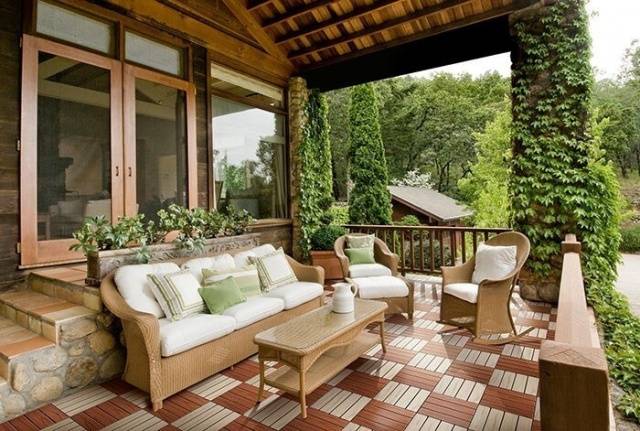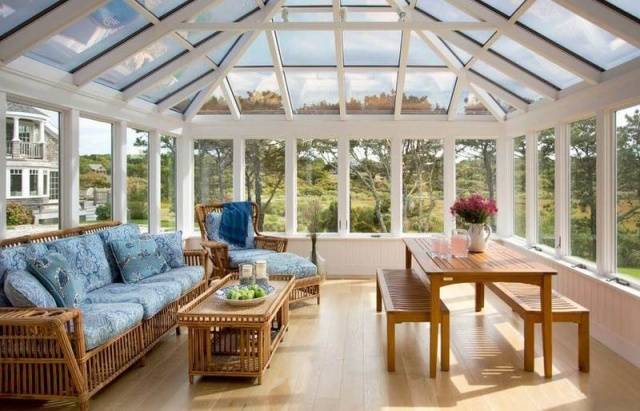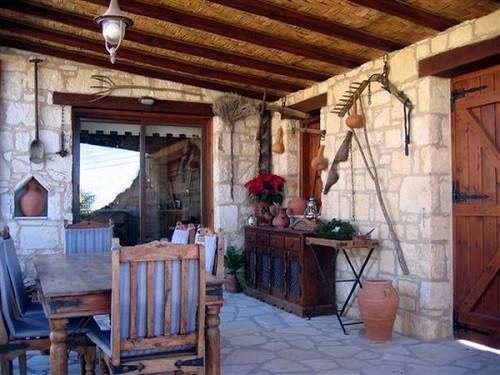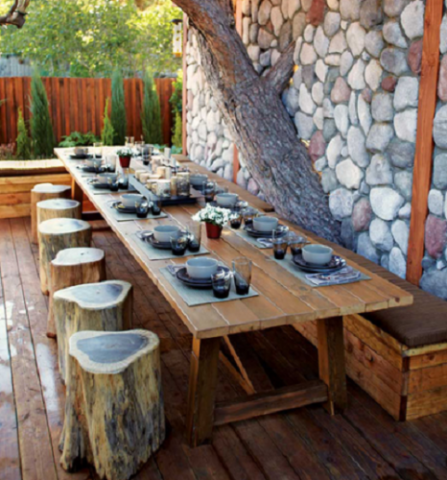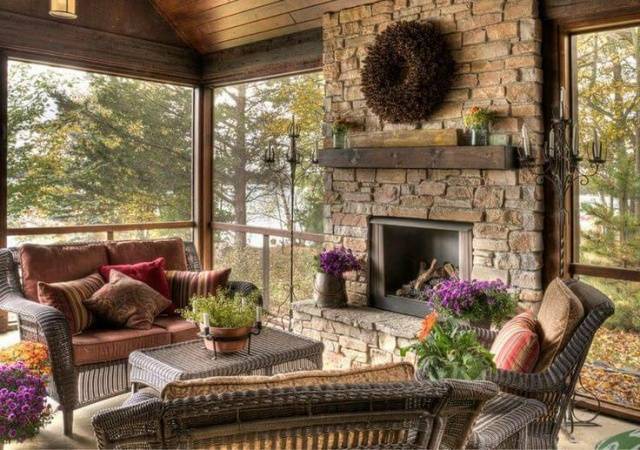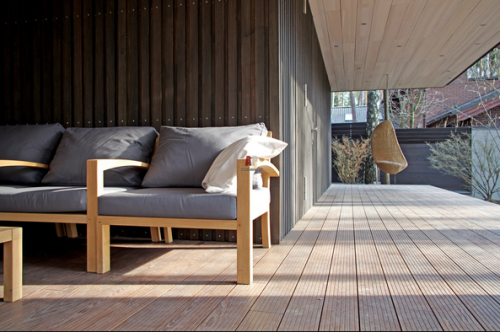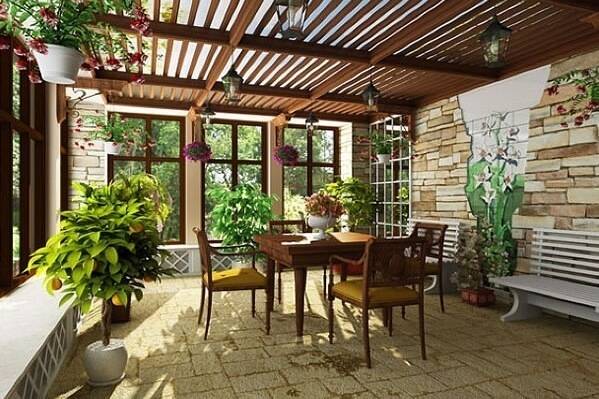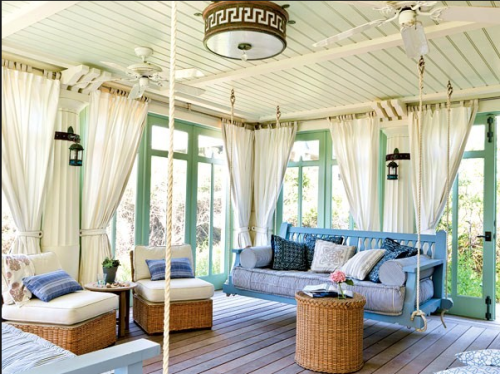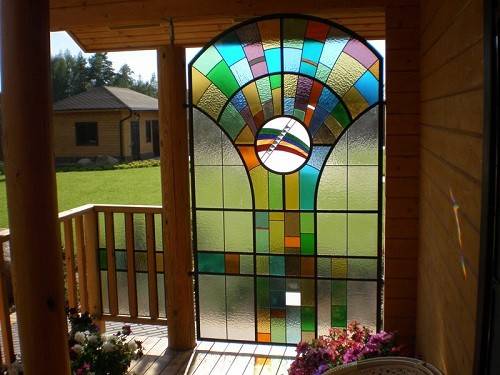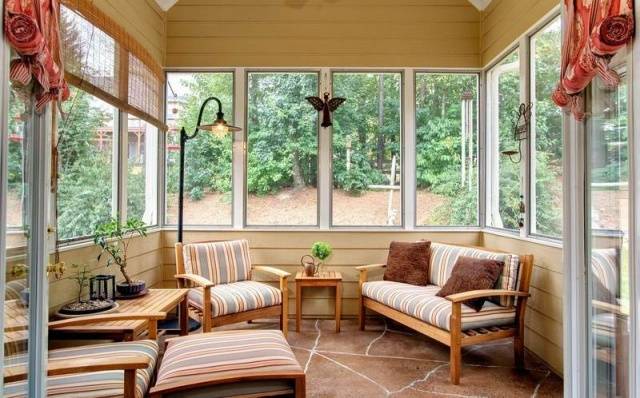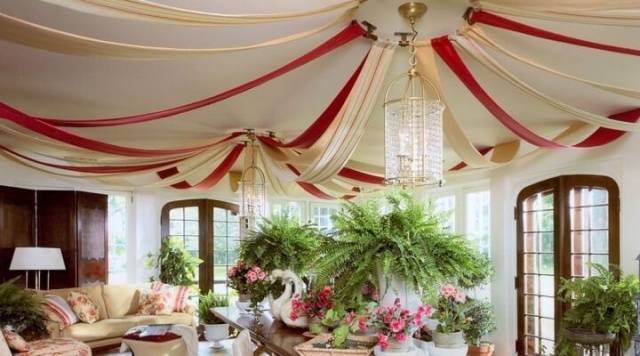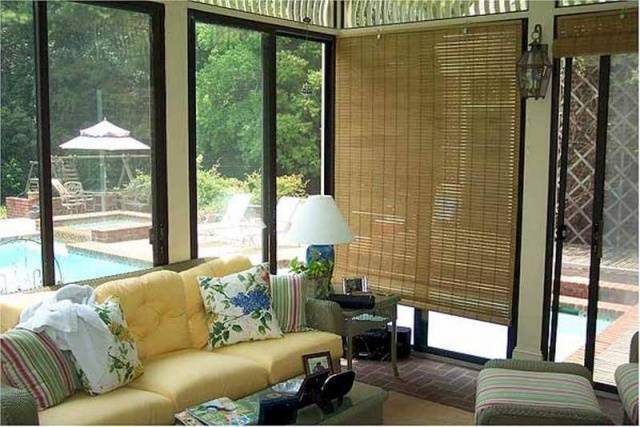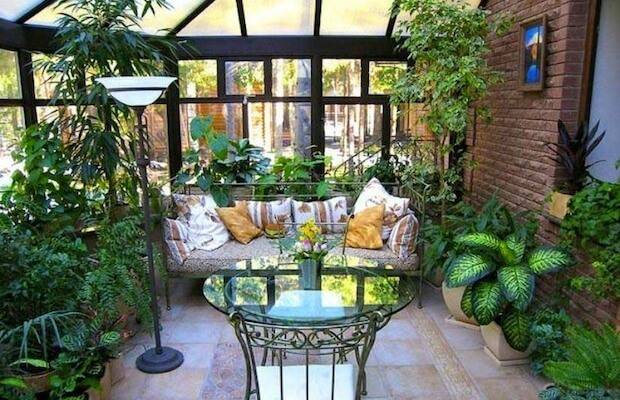Content
A country house with a veranda or terrace is the dream of almost every city dweller. After all, how nice it is to sit in the open air in the evening, chat with friends or just look at the stars. The extension can be called a link between the house and the garden, as it combines the comfort of a home with picturesque nature. For those who have recently purchased a suburban area, we want to tell you how to decorate a veranda so that it turns out to be comfortable and bright.
Existing types of verandas
Before touching on all the intricacies of design, you need to determine what type your extension belongs to. The choice of style, furniture, items for decoration, etc. will depend on this.
Open type verandas
An open veranda attached to the house is often called a terrace. Outwardly, these two designs are really similar to each other. But if you go into the features of the buildings, then it is the veranda that is an extension to the house. These two buildings can even be built on the same foundation. The terrace is erected on a separate base or it is replaced by supporting pillars dug into the ground.
The main feature of an open veranda is space and a lot of light. The design of the extension is aimed at emphasizing this dignity. Design in pastel colors, as well as colors that are as close to nature as possible, is welcome. Green spaces are an obligatory decoration element. Decorative vines, flowers and even trees are planted around the open area, and also placed in flowerpots on the floor of the extension.
Closed verandas
In a country house, closed verandas are very often welcome. In addition to summer holidays, in winter such an extension can be used as a full-fledged room. Expensive mansions are also decorated with a closed veranda. The extension is often made glazed. The result is the effect of an open terrace. Through the windows, an overview of wildlife opens up, at the same time the glass protects the resting place from wind and precipitation.
Even the roofs are glazed. The inner space of the extension is buried in the morning in the rays of sunlight, and at night you can admire the stars through the transparent roof. Often such extensions are made semi-closed or equipped with opening doors.
Features of the design of the veranda
You need to start thinking over the design of the extension even before its construction. At the stage of drafting the project, all the nuances are taken into account, from building materials to the choice of the color of the topcoat.
Doing your own design, you need to take into account one rule: the style of the extension and the residential building should be harmoniously combined with each other, as well as complement each other. For example, if the house has a gentle French-style atmosphere, then Gothic is not inherent in the veranda. But you should not go to extremes either. It is not necessary to decorate the extension and the house in the same style. In the absence of experience in design skills, it is advisable to use simple options.Let's say a rustic, Scandinavian or eco style looks good.
In the presented photo you can see the design of the extension in the Scandinavian style. See how it resembles a rustic setting.
And this photo shows the design of the resting place in an eco-style. In some ways, it also resembles a village. The furnishings are made from almost untreated natural materials.
From these examples, you can build the design of a village house. For example, in an eco-style it is better to decorate a veranda, and a Scandinavian or rustic version is suitable for a living space.
How the choice of material affects the design of the extension
The closed and open veranda is a continuation of the house, you can even call it the beginning. If you build an extension near the finished building, then choose materials for its construction not of the worst quality. Even later, the veranda built should look like one with the house, as if they were installed at the same time.
It is ideal for the extension to use the same material from which the residential building was erected. Let's say a wooden veranda is suitable for a village house made of timber. If it is a brick, then it must be present in the extension. Although a combination of natural materials with stone buildings is allowed. A wooden veranda near a house with red or decorative yellow bricks looks good. In this case, the wood can be varnished to match the color of the main building.
The walls and roof of a closed annex should fit snugly against the house. Moreover, it is advisable to use the same roofing material on both buildings. An exception may be a transparent roof. It is important even to choose the right shape of the roof. On the veranda attached to the side wall of the house, a lean-to roof will look neater. An extension to the end of the house can be equipped with a gable roof.
The choice of material depends on whether the extension will be heated in winter. In a warm room, you can relax the quality for the benefit of beauty. For a cold and open extension, it is advisable to give preference to quality, that is, to choose moisture-resistant materials. Otherwise, in a room that is damp during the winter, beauty will turn into unnecessary trash.
Design options for different elements of the veranda
If you yourself decorate the veranda, then you cannot do everything spontaneously. Each element of the extension is thought out at the stage of its construction. Having finished one business, they proceed to another.
Floor
Finishing work in the veranda begins from the floor. For an open-type extension, only moisture-resistant materials are used. The most common option is decking. The cedar looks beautiful. Larch will be more reliable. The budget board is made of pine. Such a floor must be well treated with protective impregnations against dampness and fungus. More expensive, but more reliable, the floor will turn out to be coated with ceramic tiles, mosaics, decorative stone.
Inside a closed veranda, you can use any floor covering that is also suitable for home, for example, linoleum. However, it must be remembered that the extension is the first room where a person enters from the street. Dirt and dampness are brought in with the shoes. If a laminate is chosen for the floor, then it must also be moisture resistant.
Walls
The next step is to decorate the wall adjacent to the house. The material is selected for the floor covering. If, for example, terraced melancholy was used, then the wall is sheathed with wooden clapboard. Decorative plaster and facing stone are suitable for stone or tiled floors. By the same principle, the rest of the walls of the closed extension are finished.
In an open area, the wall adjacent to the house is ideal for revealing with plastic clapboard. A wide variety of panels allows them to be matched to the texture of the floor covering.Plastic is resistant to dampness, and will calmly endure wintering on the street. Its only drawback is fragility. With weak mechanical stress, cracks appear on the panels.
MDF board looks beautiful on the walls. The panels are much stronger than plastic, they have many colors, but they are afraid of moisture. They are best used to decorate the walls of closed annexes.
Ceiling
A closed and open veranda should be as bright as possible. Do not hang something massive and dark on the ceiling. It should be airy. Transparent ceilings create a spacious and light atmosphere. If this option is not affordable, you can resort to lining with plastic panels in light colors. Classic white is ideal. Lovers of modern style prefer a stretch ceiling. It is better to choose a light canvas for him too.
Window
Most of the covered veranda is made up of windows. They also need to be matched to the style of the room. For example, stained glass compositions are suitable for Gothic, and for the French style it is better to make large openings. Ordinary plastic double-glazed windows are a budget option, but for them you need to think over the opening sashes in a convenient place. Even the windows and vents themselves can be given an unusual shape.
Furniture
The design of the veranda will be violated if the furniture is incorrectly selected. The size of objects is selected based on the dimensions of the room. For a small veranda, a folding table and a sofa, which comes complete with window sills, are suitable. Ordinary folding furniture can be used. Inside a large closed veranda, a chic sofa, table, bedside table will fit well.
Curtains
Glass-walled verandas have a lot of sun. You can solve the problem by hanging roller blinds. They are also matched to the style of the room. There are many types of fabrics, differing in color, composition and density of the material. For example, for a Mediterranean or Scandinavian style, it is optimal to use light translucent curtains. Transparent PVC curtains are suitable for open verandas. They additionally protect against wind and rain.
The original design can be created using bamboo curtains, or you can hang blinds. This design of the veranda is guaranteed to protect from the sun in hot weather.
Landscaping of the veranda
Green vegetation is an integral part of the verandas and terraces. Even if the space does not allow large decorative plantings to be placed in flowerpots, several flower arrangements can be planted. A pot of flowers will look beautiful on a wrought iron stand. You can even make a vertical rack and mount it on the wall.
The video shows options for terraces and verandas in the country:
Conclusion
A self-designed veranda will become not only a decoration of the yard, but also the pride of its own craftsmanship.
